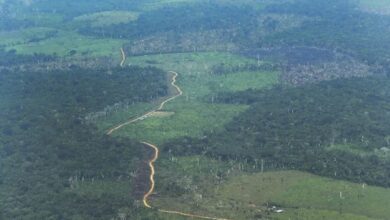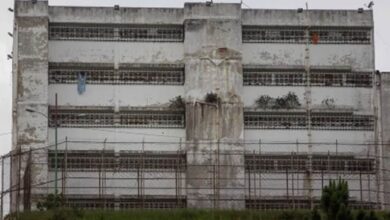Environment and money: this is how agriculture works in China
Listen this article
Researchers from Stanford University found that Chinese farmers are able to achieve economic and environmental benefits

By questioning monocultures and the supposed benefits they bring, researchers from Stanford University, McGil University, and the Chinese Academy of Sciences found that Chinese farmers who took environmental concerns into account when farming their land were able to double their income and obtain benefits.
Leer en español: Medio ambiente y dinero: así es la agricultura en China
The idea of scientists is to diversify the crops and move from the monolithic model to one in which agriculture provides more than crops. The EurekAlert! portal affirms that the goal is to ensure that crops, apart from providing food, are able to produce flood control, purify water, stabilize climate, among others .
The experiment was carried out on the Chinese island of Hainan. There, excessive rubber plantation, which has brought great economic benefits to a high environmental price, has caused natural forests to decrease and some of its advantages such as flood mitigation and soil retention.
The results showed that those farmers who had rubber plantations but who also planted other plants maintained the same production of monocultures but also significantly increased the retention of nutrients and soil. Moreover, the researchers found that those farmers with diverse crops increased their income thanks to the other crops; in some cases, they even duplicated them.
Read also: Is Latin America close to building 'green countries'?
This environmental approach also made it possible to identify that farmers with diversified crops were less vulnerable to losing commercial value, as their variation in crops made them gain value in the market. With the monocultures, due to the oversupply of the same product, the production usually loses value and with that the economic gains decrease.
The study shows that sustainable development is possible and that economic progress is not synonymous with environmental destruction. On the contrary, both spheres can go hand in hand and greatly benefit the planet and humanity.
Additionally, the work done on Hainan Island is an example of how monocultures should be re-tought and establish agricultural strategies and practices that promote economic and environmental benefits.
Greenpeace proposes to implement ecological agriculture on a large scale. According to the NGO, organic farming shows every day that it is not only the best option to protect our health and the environment, but that it is capable of feeding the planet if adequate investments are made. In fact, it could be an unstoppable source of green jobs.
Greenpeace explains that "in the ecological agriculture model the ecological balance based on biodiversity is promoted, being the only way to guarantee healthy food for today and also in the future".
LatinAmerican Post | Marcela Peñaloza
Translated from "Medio ambiente y dinero: así es la agricultura en China"





